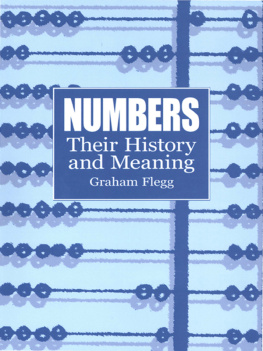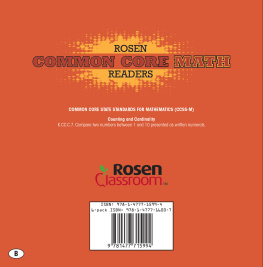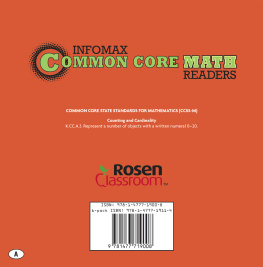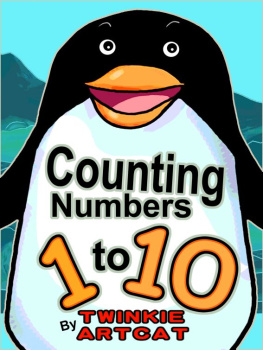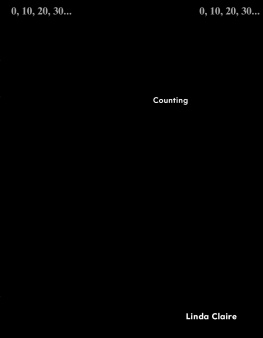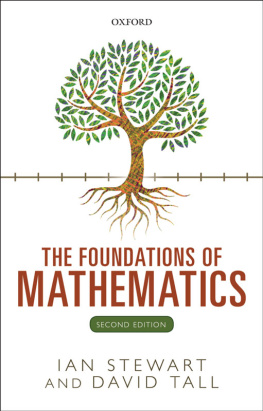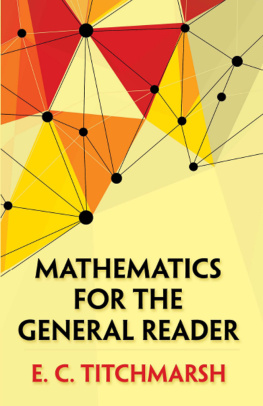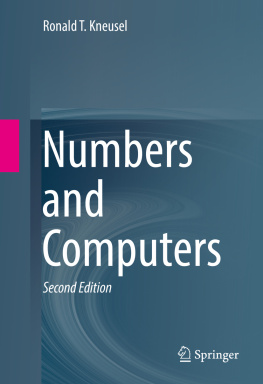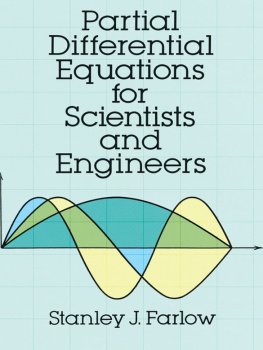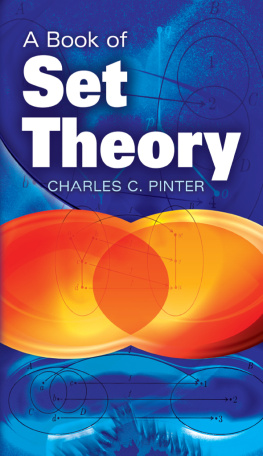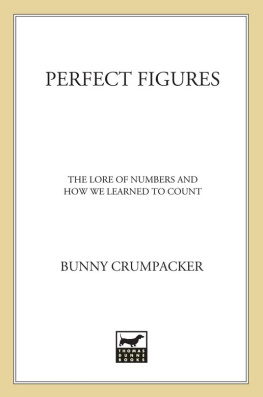Graham Flegg - Numbers: Their History and Meaning
Here you can read online Graham Flegg - Numbers: Their History and Meaning full text of the book (entire story) in english for free. Download pdf and epub, get meaning, cover and reviews about this ebook. year: 2012, publisher: Dover Publications, genre: Science. Description of the work, (preface) as well as reviews are available. Best literature library LitArk.com created for fans of good reading and offers a wide selection of genres:
Romance novel
Science fiction
Adventure
Detective
Science
History
Home and family
Prose
Art
Politics
Computer
Non-fiction
Religion
Business
Children
Humor
Choose a favorite category and find really read worthwhile books. Enjoy immersion in the world of imagination, feel the emotions of the characters or learn something new for yourself, make an fascinating discovery.
- Book:Numbers: Their History and Meaning
- Author:
- Publisher:Dover Publications
- Genre:
- Year:2012
- Rating:5 / 5
- Favourites:Add to favourites
- Your mark:
- 100
- 1
- 2
- 3
- 4
- 5
Numbers: Their History and Meaning: summary, description and annotation
We offer to read an annotation, description, summary or preface (depends on what the author of the book "Numbers: Their History and Meaning" wrote himself). If you haven't found the necessary information about the book — write in the comments, we will try to find it.
Numbers: Their History and Meaning — read online for free the complete book (whole text) full work
Below is the text of the book, divided by pages. System saving the place of the last page read, allows you to conveniently read the book "Numbers: Their History and Meaning" online for free, without having to search again every time where you left off. Put a bookmark, and you can go to the page where you finished reading at any time.
Font size:
Interval:
Bookmark:

Copyright
Copyright 1983 by Graham Flegg.
All rights reserved under Pan American and International Copyright Conventions.
Published in Canada by General Publishing Company, Ltd., 895 Don Mills Road, 4002 Park Centre, Toronto, Ontario M3C 1W3.
Published in the United Kingdom by David & Charles, Brunel House, Forde Close, Newton Abbot, Devon TQ12 4PU.
Bibliographical Note
This Dover edition, first published in 2002, is an unabridged reprint of the work originally published in 1983 by Schocken Books, New York.
There are no pages i & ii. The book begins on page iii. No text has been omitted.
Library of Congress Cataloging-in-Publication Data
Flegg, Graham.
Numbers : their history and meaning / Graham Flegg.
p. cm.
Originally published: 1st American ed. New York : Schocken Books, 1983.
Includes bibliographical references and index.
ISBN 0-486-42165-1 (pbk.)
1. NumerationHistory. 2. Number theoryHistory. I. Title.
QA141.2 .F56 2002
513dc21
2002019199
Manufactured in the United States of America
Dover Publications, Inc., 31 East 2nd Street, Mineola, N.Y. 11501
We hear a great deal today about the problem of numeracy. Educationalists vie with each other in their attempts to diagnose the causes of the problem and to suggest ways in which it can be resolved. The blame is laid variously upon parents, primary schools, secondary schools, poor curriculum planning, the examination system, teacher-training, and the universities, each in their turn. Curricula are redesigned, teachers are retrained, innumerable conferences are organized, and yet the problem seems to remain with us. Nevertheless, the majority of people seem to get by in their everyday life; their understanding of numbers and their ability to manipulate them is adequate for their essential needs. On the one hand, therefore, we have a great many educationalists and politicians expressing concern about a serious problem in society, whilst on the other hand most people live their lives as if no problem existed. We may well wonder if the problem is indeed one of substance.
The truth most probably lies somewhere between the two extreme viewpoints. Most people do handle their day-to-day numerical problems adequately. They also handle adequately many problems which they do not themselves recognize as having significant numerical content, yet which in fact involve quite sophisticated numerical ideas. It is, for example, second nature to read the time. People do not need any deep understanding of the mathematics or the technology involved. Equally, people make purchases in the shops and can quite quickly ascertain whether or not any change is correct. We might well wonder, then, just what is the precise nature of the numeracy problem. We can hardly dare to suggest that no such problem exists there are too many people declaring that it does.
It seems that the numeracy problem has three aspects, which we might somewhat crudely describe as high, low and in the middle. The high problem is related to those upon whose basic mathematical ability the commerce and industry of a country depend. It is claimed, and with some justice, that people who are supposed to be mathematicians are no longer able to actually do mathematics as well as their predecessors. The blame for this is generally laid at the door of the so-called modern mathematics curricula which are alleged to have taught scholars a great deal about mathematics without adequate emphasis upon how to perform calculations. There may well be some truth in this, but the blame should hardly be placed upon the curricula. For the most part these curricula have served their objectives well. They were designed to redress an imbalance in mathematics teaching toward calculation for its own sake. This was a fair criticism of the traditional approach to mathematics, but balance was not truly restored the pendulum just swung in the opposite direction. What was needed was the setting of calculation exercises within the context of real-life problems to give them some meaning. This has now been realized and the emphasis has rightly shifted away from the abstract structures of mathematics towards what is termed the problem-solving approach. This is a good thing, provided that the problems are real and not manifestly artificial.
The low problem is one which is rightly the concern of many educationalists. It is realized that pupils in the average-to-bright range will get by even if the teaching which they receive is not particularly inspired. There are adequate pressures from the family and from the school to ensure that these pupils will pass their examinations. There is, however, a serious problem with the apparently less able children, and this cannot just be dismissed by stating that some people are stupid. A great many of these children are not really less able at all they are certainly not stupid. They are simply children for whom more conventional methods of teaching are unsuitable, and this situation is at its worst when it comes to the question of learning mathematics. It is very important that educationalists continue to give serious consideration to this. They must be prepared to experiment, and adequate funds must be made available to ensure that proper design, conduct and evaluation of such experiments may continue.
The problem in the middle is much more general and hence less easily defined. It can be said to be that, despite all the efforts made by teachers of one generation after another, an organized understanding of the various aspects of numbers is almost universally lacking. It exists only amongst those who have a special interest in mathematical studies. Indeed, there seems to be a positive resistance to almost all the efforts made to persuade people at large that an attempt to learn more about numbers in any organized way is worth the effort. Everyone accepts the necessity for being able to tell the time, read a railway timetable, handle cash efficiently, and the like, but these activities are seen from a purely practical standpoint they are not thought to be of any conceptual interest, and they are entirely divorced from each other.
Mathematics is unpopular! Its mention is guaranteed to put a stop to social conversation except at a gathering of mathematicians. It is not merely that it is thought largely irrelevant to the necessities of day-to-day life; it is also that there seems to be an unchallenged view that it is both dull and difficult when compared with other areas of study. This seeming irrelevance and the supposed difficulty are not entirely unconnected, and the connecting thread is abstraction. Abstraction has little place in everyday life pressures to do things are too great and too many to allow time truly to think about things. Thought is largely reserved for the theoretical politicians, economists, and theologians, whose popular image cannot exactly be described as a favourable one.
It is not however universally true that the fascination of numbers is unrecognized except by the professional mathematician. Many laymen have found numerical problems fascinating in their own right. Indeed, a number of significant mathematical discoveries have been made by people who could be labelled as amateur mathematicians. A great deal of fun has been obtained from numbers bv a great many people. This fact does not seem, however, to communicate itself to the public at large. Rather than accept that the study of numbers can be a fascinating hobby, the general public tends to put such people into that wide category which has the label cranks. This almost overtly hostile general attitude to mathematics seems to be of comparatively recent origin. In past centuries it was widely accepted that an understanding of, as well as a facility with numbers, is an essential part of general education. This goes back even beyond the days of Ancient Greece, though it can of course be argued that in those days formal education was confined to the privileged few. Today, in advanced societies at least, that privilege is virtually universal, and so we may well seriously enquire as to the source of the widespread seemingly in-built resistance to learning about the ideas underlying numbers when, at the same time, there is an equally widespread acceptance that mathematics plays an essential role in modern technological society. Man now has the knowledge both to travel into space and to destroy the earth as a habitable planet. This knowledge has to a considerable extent depended upon mathematics in a sense we can say that mathematics and hence numbers hold the key to the future destiny of mankind. This is nothing new. Numbers have always played an essential role in shaping the evolution of society.
Font size:
Interval:
Bookmark:
Similar books «Numbers: Their History and Meaning»
Look at similar books to Numbers: Their History and Meaning. We have selected literature similar in name and meaning in the hope of providing readers with more options to find new, interesting, not yet read works.
Discussion, reviews of the book Numbers: Their History and Meaning and just readers' own opinions. Leave your comments, write what you think about the work, its meaning or the main characters. Specify what exactly you liked and what you didn't like, and why you think so.

